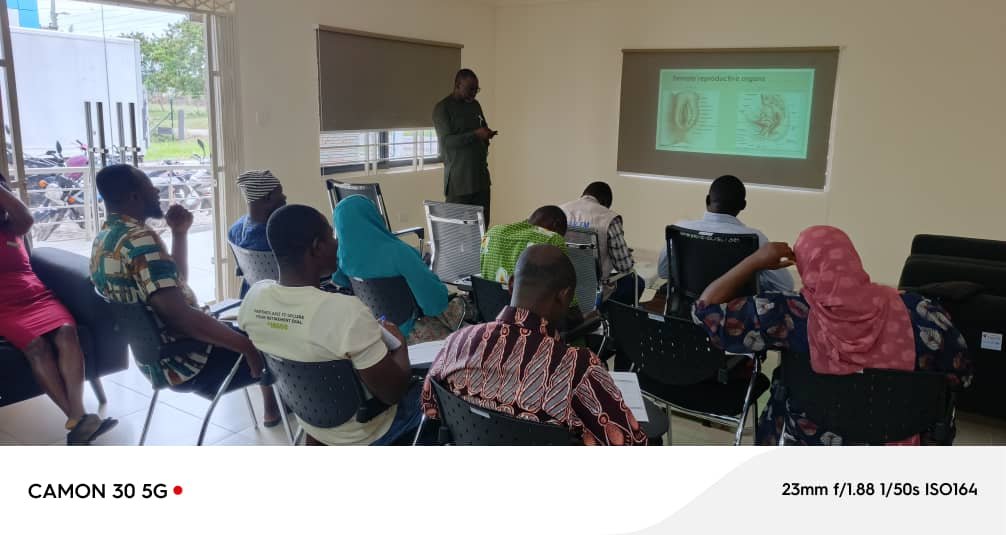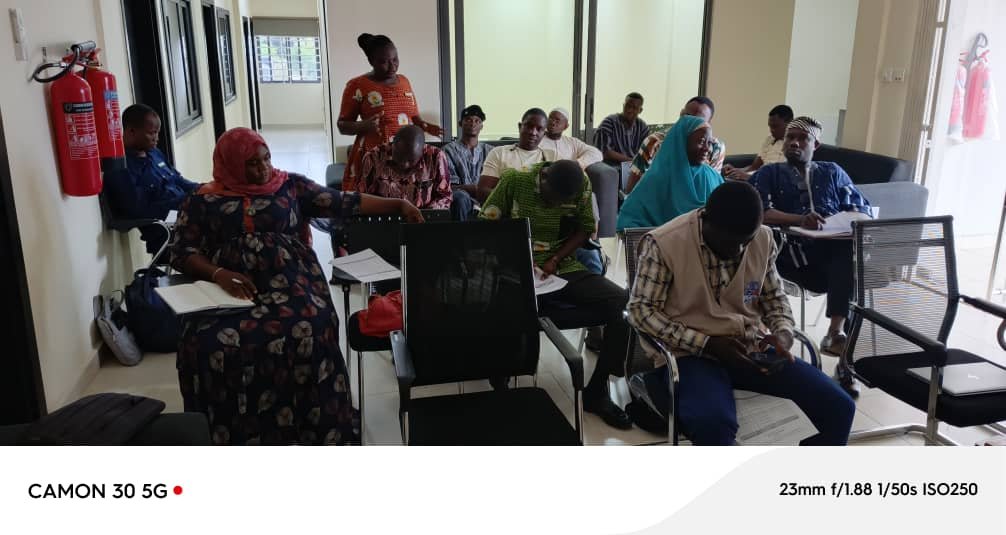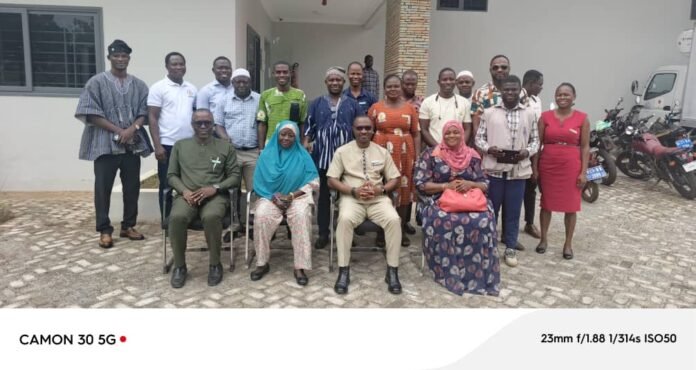The Savannah Regional Health Directorate has launched a comprehensive stakeholder engagement initiative to build support for Ghana’s upcoming Human Papilloma Virus (HPV) vaccination campaign, which aims to protect young girls from cervical cancer.
The strategic meeting, held in Damongo, brought together a diverse coalition of regional partners including representatives from the Ghana Education Service, Regional Coordinating Council, Information Services Department, National Commission for Civic Education (NCCE), local media outlets, and religious leaders from both Muslim and Christian communities.
Dr. John Ekow Otoo, Savannah Regional Health Director, opened the engagement by emphasizing the urgent need for cervical cancer prevention among adolescent girls in the region. “The HPV vaccine represents a major breakthrough in women’s health,” Dr. Otoo stated, calling on all stakeholders to unite in making the campaign successful.

The scientific foundation for the campaign was laid out by Mr. Anthony Kontoh, speaking on behalf of the Deputy Director of Public Health. His presentation provided participants with essential knowledge about HPV transmission, its health effects, and the critical importance of vaccinating girls aged 9-14 before potential exposure to the virus.
Dr. Bawa, also serving as Deputy Director of Public Health, delivered an educational session focusing on cervical anatomy and function, explaining how HPV affects the cervix. He stressed the vital importance of demystifying reproductive health education within communities to ensure broader acceptance and understanding.
Mrs. Janet Kulah, Regional Health Promotion Officer, outlined the comprehensive timeline for campaign activities. The multi-pronged approach includes community sensitization programs, extensive media outreach initiatives, and school-based vaccination programs designed to reach the target demographic effectively.
The engagement session provided stakeholders with opportunities to pose questions, share perspectives, and contribute suggestions aimed at enhancing public education efforts and increasing vaccine acceptance rates across the region.

In his closing remarks, Dr. Otoo addressed a significant challenge facing the region’s healthcare delivery system. Recent inter-ethnic clashes in parts of the Savannah Region have created security concerns that forced some health workers to abandon their duty posts due to safety fears.
“Such instability threatens access to essential health services,” Dr. Otoo warned, emphasizing that continued conflict could leave the region behind in critical national health interventions. He called for peace, unity, and community cooperation to ensure all residents can benefit from important health programs like the HPV vaccination campaign.
The stakeholder engagement represents a crucial milestone in the region’s preparation for the national HPV vaccination rollout. By bringing together education officials, civic leaders, media representatives, and religious authorities, the health directorate is building the broad-based support necessary for successful campaign implementation.
The HPV vaccination campaign forms part of Ghana’s broader commitment to reducing cervical cancer incidence among women, targeting the optimal age group when vaccination provides maximum protective benefits.
As the Savannah Region moves forward with campaign preparations, the success of this stakeholder engagement will likely serve as a model for other regions preparing to implement this critical public health intervention.




